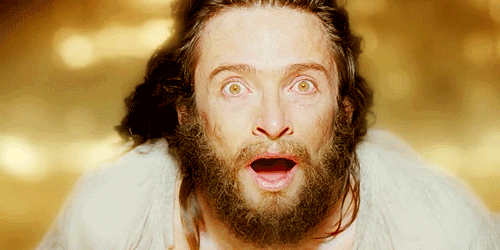It is surprising how few Republican nominees are not candidates who ran before and lost, which is rarely the case in the Democratic party. Most open primaries are won by first time Presidential candidates. Only time the Republicans didn't pick a previous losing candidate since 1976 was 2000.
Romney 2012: Ran in 2008 and lost.
McCain 2008: Ran in 2000 and lost.
Bush 2000: Did not run before.
Dole 1996: Ran in 1980 and lost.
Bush 1988: Ran in 1980 and lost.
Reagan 1980: Ran in 1976 and lost.
To keep this trend up either you have to be the spawn of George HW Bush or be a previous failed presidential candidate.
Dole also ran in 1988 and did much better, his 1980 bid was more like George Pataki's. 1988 was when he got pissed at Bush and told him to STOP LYING ABOUT MY RECORD. Reagan "ran" in 1968.
One reason the Democrats have had it less so, is that they've been less successful at producing Presidencies. Having had exactly two (Carter and Clinton) in the modern primary era before Obama.
Gore had run in 1988 and was the nominee in 2000. Mondale was the nominee in 1984 which would have been "his turn" I guess if Carter won again, he only backed out of 1976 at the last second. Humphrey eventually wound up as the nominee in 1968 by becoming VP. He had made runs in 1952 and 1960.
Democrats interestingly have picked a pair of "almost-rans" as their candidates. Clinton backed out in 1988 at the last second, became nominee in 1992. Kerry did the same in 2000, became nominee in 2004. I mentioned Mondale.
One thing I find interesting and this goes back to the first conventions, is that parties seem to wind up with large crops of candidates, but no "obvious" one, at the same time or they have a basically unanimous pick with one opposing shot and this is even when they don't have incumbents. Reagan in 1976 and Obama in 2008 were in that role more or less. Obama was successful because of the open primary system, Ford held the convention vote.
Had Hillary not run, I imagine there would be a swarm of Democratic candidates but none of them sticking out much like the GOP field has been. Rising and falling, but mostly holding in the 5-10% range.
This is something PACs have helped. No longer can the field be pre-cleared for Nixon/Bush/Dole as easily as it was in 1960, 1968, 1988, 1996, and 2000. And we now see in the D race, that even what should be insurmountable poll numbers aren't an ideal indicator of the state of the race. If Hillary had been at 45% six plus months ago, there's no way people like Cuomo are fleeing the race instead of hanging around hinting at runs.
Our other D examples have spanners thrown into the works. 1976 has a party in disarray and only one candidate who figured out how the delegate system worked. Carter's re-election bid has the most popular Democrat of his era running as a challenger. Gore's bid has him intentionally running away from Clinton and still having the field mostly cleared for him despite Bradley not polling
too badly.
1988 D race continues to be the most interesting to me, the by-far front-runner gets caught on a boat, the next-runner gets forced into being VP 20 years later as punishment for not doing proper sourcing in his speeches, and the rest all appeal to only one segment of the base. So you wind up with Michael Dukakis who nobody wanted as the candidate when the race started.
Of course, no model can compensate for the Donald, as he himself will tell you. Okay? As all the experts say, you simply cannot account for Donald Trump, you can't do it, ask anybody. Okay?
Guys, I'm back! Someone fill me in super quick on the last 2 weeks. I have seriously ignored almost everything minus big news stories (like the shooting).
I know Scott Walker dropped out (lol PD) a while ago and Boehner announced his resignation, but other than that, been in the dark.
The state admitted its illegitimacy and set a date for ending its violence.





